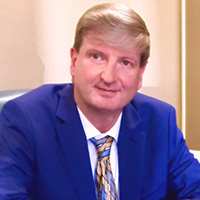Custer Misdemeanor Lawyer, Wisconsin
Not enough matches for Custer Misdemeanor lawyer.
Below are all Custer Criminal lawyers.
Peter C. Lloyd
✓ VERIFIEDDivorce & Family Law, Criminal, Traffic, Child Custody, Child Support
Attorney Peter Lloyd is an experienced lawyer practicing law in the Central Wisconsin area. He limits his practice to specific areas (family, criminal... (more)
Stephen W. Sawyer
Felony, Misdemeanor, White Collar Crime
Status: In Good Standing Licensed: 28 Years
FREE CONSULTATION
CONTACTJonathan A. Barnett
Landlord-Tenant, Traffic, Workers' Compensation, DUI-DWI
Status: In Good Standing
William D. Mansell
Workers' Compensation, Personal Injury, Family Law, Criminal, Mass Torts
Status: In Good Standing Licensed: 44 Years
Kenneth J. Andraski
Traffic, Mass Torts, Divorce & Family Law, Criminal, Accident & Injury
Status: In Good Standing Licensed: 50 Years
William Drengler
Bankruptcy, Criminal, Divorce & Family Law
Status: In Good Standing Licensed: 48 Years
Robert N. Forseth
Real Estate, Estate, Divorce & Family Law, Criminal
Status: In Good Standing Licensed: 12 Years


